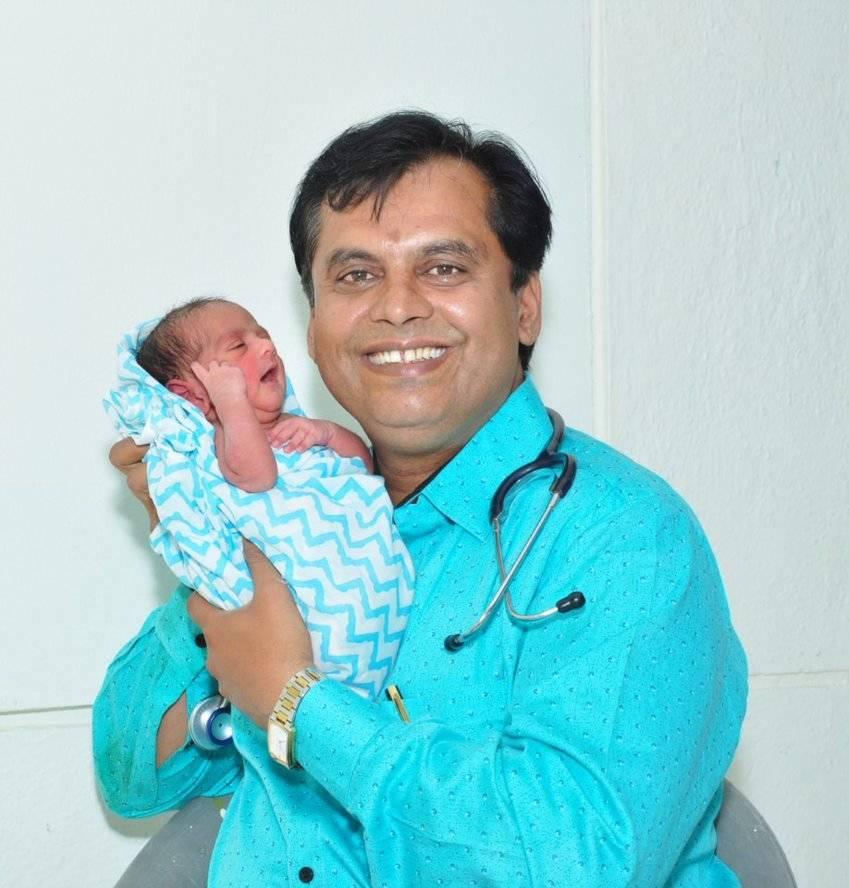
Dr. Ganesh Rakh runs a hospital in Pune, Maharashtra with a unique mission to save as many girl children as he can. In the past decade since he launched Mulgi Vachva Abhiyan (Marathi for "campaign to save the girl child"), Dr. Rakh and his team have delivered over 2,000 baby girls without charging any medical fee.
ADF India had the honor to interview Dr. Ganesh Rakh and hear from him as part of its Vanishing Girls (VG) campaign.
VG: What is the inspiration or motivation behind what you do?
Dr. Rakh: The biggest challenge for a doctor is to inform the family of a patient’s death. I used to be equally worried when I had to tell them that a girl was born. The relatives’ faces would turn sullen, the mother would start crying, and sometimes they even refuse to pay the bills. They would be so disappointed. On the other hand, male baby births were welcomed with jubilation and distribution of sweets! This is when I decided that I would waive off the fee if a girl is born in our hospital. Like how a male birth was welcomed, we cut cake, distribute sweets and celebrate the birth of the girl.
VG: What would you say is the root cause of daughter aversion or female feticide in India?
Dr. Rakh: In the past 10 years, India has lost over 630 lakh girls because of son preference*. This is because of a combination of many things. We hear in the news of 3–4-month-old baby girls being raped. The violent incidents against women and girls have shown that India is not a safe place for them. Parents assume that from birth to marriage and even after, there is much stress and tension associated with bringing up a daughter. From the moment a girl is born, parents worry about the dowry they’d have to arrange for her marriage. After marriage, they worry that she might give birth to a daughter. It is a vicious cycle! Instead of worrying, we should come up with ways to empower her so that she can stand on her own and not be bogged down by outdated traditions.
I used to think that female feticide was a rural problem, but I learnt that it was more common in the cities amongst middle- and upper-class societies. It is sad to see a high level of sex-selective abortion taking place even in other countries wherever the India population is high. Daughter aversion is an evil mindset in Indian society that needs to be uprooted. Only then will we see effective change.
VG: Through the Vanishing Girls campaign, we often share positive stories so that we can inspire people to do the same. Can you tell us how your work has impacted the families of the baby girls who were delivered in your care?
Dr. Rakh: It is a joy for me when parents pay me a visit to tell me that their daughters are doing well and accomplishing wonderful things. They tell me that they are glad they did not go through with the abortion because now their daughters bring much comfort and joy to them.
VG: How important has your family been to your work in this journey?
Dr. Rakh: I have a young daughter, Tanisha. Every baby girl I deliver or any young girl I get to help, I view them as my own daughter. My wife, Trupti, has always supported me despite all the challenges we faced. She has stood beside me and managed the hospital superbly all these years. Without them, it would have been impossible.
VG: What is your message for other doctors?
Dr. Rakh: As long as there is a demand for sons over daughters, the industry will always find a way to meet this need. There are many people willing to pay any amount to have a son and no law will be able to end this greed unless there is a collective change in our mindset. Committing the crime of sex-selective abortion is equally evil as murder. I urge doctors to shoulder the responsibility by understanding the gravity of the problem and choosing to save the girl child if faced with such an opportunity.
VG: Has the current covid pandemic led to an increase in sex-selective abortion?
Dr. Rakh: I believe so because the medical fraternity is occupied with tackling the pandemic. The census which was supposed to be released this year is also delayed because of Covid. When the Government publishes the report, maybe in a few years’ time, we will know the real numbers.
VG: We work with various influencers and artists to raise awareness on the topic of sex-selection. Do you think their role is important to fight this battle?
Dr. Rakh: Celebrities and influencers or artists with large number of followers on social media obviously have the capacity to impact people’s thoughts and actions. It is encouraging to see many of them use their platform to do good. If they share the message of saving the life of the girl child, even if one girl is saved, that is progress. Who knows? That girl may grow up to be a Prime Minister.
VG: Doctor, thank you for giving us your time. We are inspired by your story and your work. How can people support you or donate towards your work?
Dr. Rakh: It is not only I who can do such work. If my story has inspired you even a little bit, my only request is that you do what you must do in your own field or region. If everyone can shoulder the responsibility to save the lives of our baby girls, we can win the battle against sex-selection.
As part of the Vanishing Girls campaign, ADF India regularly conducts training for ASHA workers (Accredited Social Health Activists) workers and seminars with doctors to raise awareness against the practice of sex-selective abortions and to advocate for effective implementation of the Pre-Conception Pre-Natal Diagnostic Techniques (Prohibition of Sex Selection) Act, 1994.
*Economic Survey 2017-18

